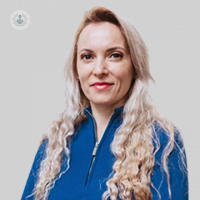How can I improve my acne scars?
Escrito por:Acne treatment by a dermatologist will depend on the type of acne scars present. Dr Firas Al-Niaimi, a leading dermatologist, is an expert in treating acne and acne scars and here he gives us a concise summary of the need-to-know details on acne scarring.
What causes acne scars?
Acne is treated like a wound by the body and as a result, whilst your body tries to heal these wounds an excess of collagen is produced around the acne. If this build-up of collagen remains permanently, an acne scar will be left. Although such scars can fade over time (months – years), many people with acne scars are keen to find treatments to reduce their visibility and to have smoother, clearer skin.
Do over-the-counter acne scar treatments work?
Although some over-the-counter topical acne treatments can have some level of success in reducing scarring, results will take a long time and might not be hugely noticeable. If you have tried over-the-counter remedies without much success, a visit to your GP would provide you with prescribed topical solutions such as cortisone cream. Whilst these creams can help calm the redness and inflammation, they cannot provide long-term scar reduction. The best way to treat troublesome acne scars is with a more permanent solution, provided by an experienced dermatologist.
Should I have laser treatment?
Laser treatment is a good option for people with ice-pick scars (deep and narrow pitted scarring) and boxcar acne scars (broad depressions with defined edges). During laser treatment the laser penetrates the deeper layers of the skin, precisely targeting a particular area of damaged skin which is then destroyed by the laser. By purposefully damaging the skin the body responds by producing more collagen which helps to heal the skin, smoothening out the scars, pores and wrinkles. Some time off regular activities and work will be needed after you have had laser treatment.
What if my scars are particularly deep?
Patients with deep acne scars will usually require pre-treatment before having laser treatment. This is because deeper acne scars are tied to the underlying skin tissues by what is called a fibrotic strand. One such pre-treatment is called subcision. Subcision is a minor procedure involving the insertion of a hypodermic needle through a very small puncture in the skin’s surface. This needle severs the fibrotic strands, releasing the scar from the lower skin layers. After this procedure the scars will heal with new growth of collagen. Local anaesthetic is applied before the procedure so that no pain is felt. Combined with laser treatment, the results can be clear, smooth and youthful skin.
If you would like to find out more about acne scarring treatments, make an appointment with a specialist.



